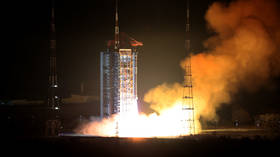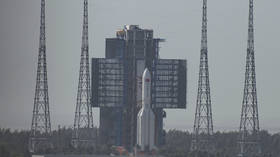Pentagon issues warning on China’s space ‘capabilities’

China’s continued advances in space are threatening Washington’s position, the head of US Space Command (SPACECOM) has warned.
Army General James H. Dickinson told the Asia Pacific Media Hub on Friday that Beijing represents the biggest challenge faced by the agency, and called on US allies to take a “unified stance” on China.
“They continue to build and build capabilities that really, quite frankly, hold most of our assets at risk in the space domain,” he told journalists via video link from Hawaii.
Dickinson described the progress made by China in this field as “really… an advancement… in their capabilities.”
His comments came less than a week after three Chinese astronauts successfully returned from orbit last Sunday. They had spent some six months aboard the country’s Tiangong orbital station as part of the Shenzhou-14 mission.
On Thursday, Beijing also said it was considering expanding its orbital station, which received its final third module as recently as last month. China began working on its own space station back in 2011, when it was banned from the International Space Station (ISS) and Washington stopped NASA from working with Beijing.
China has always maintained that its space program is solely peaceful. However, according to Reuters, the US and other Western nations have been alarmed by Chinese activities in this area, including the test-firing of an anti-satellite missile back in 2007.
According to Dickinson, such tests and technologies could congest space with debris.
The general also warned that China considers space “a very important piece to not only their economic or the global economic environment but also the military environment.” The US military “continues to watch that very closely as they continue to increase capabilities,” the SPACECOM head added.
US Space Command, along with US Indo-Pacific Command, is now focused on the challenge posed by China, Dickinson said. He added that a “unified stance by allies and partners is critical” in confronting what he called “coercion and subversion” that supposedly threatens “rules-based order” in the Indo-Pacific region and beyond.
Beijing has not yet commented on the general’s remarks.













